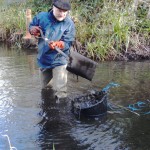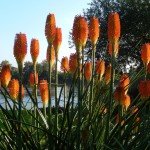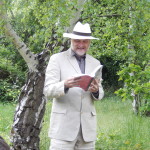What they said about The English Love Affair with Nature
Mike – Roy – Pete – Bonnie – Cath – Bill – Scottish Islands Explorer – Miss La

Mike wrote: “Ian Alexander’s book investigates the premise that since the late eighteenth century the English people have been in love with nature; with leisure time and literacy increasing and a rising number of available books about nature the love affair grew and with the population’s migration into the cities to fuel the industrial revolution’s need for workers the prevailing attitude altered from taking nature for granting to idealising it. Starting with the publication of Gilbert White’s ‘Natural History of Selborne’ and Thomas Bewick’s ‘A History of British Birds’ the relationship with nature is explored through a bewildering number of sources such as nineteenth century scientific pioneers Charles Lyell, Alfred Russell-Wallace and Charles Darwin but also landscape gardeners, romantic poets and modern children’s authors amongst many others.
Another theme of the book is the multi-faceted nature of the word ‘nature’, from harsh agricultural drudgery to idealised rural fantasy and from the viewpoints of both individuals and society. Controversies over the age of the Earth and evolution are examined, brought to public attention by the developing sciences of geology, palaeontology and taxonomy. The growth of the conservation movement from the end of the nineteenth century is also explored.
The discussions are framed by the author’s own observations of nature, clearly communicating his passion for the subject. The chronology, dramatis personae and bibliography provide an effective aid to further research on the ideas the book raises.”

Roy wrote: “Ian Alexander introduces his theme with a wink .. ‘the facts alone can be dry – but the bump and grind are not easy to put into words after the event.’
So we can expect a factual account of the development of awareness of Nature – matched with a love affair. He’s set himself a hard task – and he succeeds remarkably.
Historically he describes the English using Newtonian science to liberate themselves from the mental constraints of a medieval God-centred universe. This uncovers the combined potential of the quest for discovery and also reveals Nature in the raw as it were, fit to be wooed and pursued.
The scope of this passionate quest is phenomenal: from romantic poetry to village dogshows, from Victorian collectors to naval camouflage, traditional rural scenes to technical advancement. To a non-expert the research is impressively rigorous and credible.
However, this is not a catalogue; more of a ramble – discursive, unevenly paced according to the ground covered, with pauses for perspective or reflection. Our author /guide keeps us company with beautifully described vignettes of natural observation; – lending a beguilingly personal quality to big themes.
It is inevitably episodic- the kind of book that could be dipped into – but I found the story thread strong enough to keep me engaged from start to finish. ”

Pete wrote: “This is a really surprising and quite wonderful book for anyone who is curious about the peculiarly British (Alexander argues specifically English) affinity for our countryside, and for the idea and reality of nature. Despite its self-imposed narrow geographical scope, the book covers a vast range. Despite what might be supposed from its title, the focus isn’t really on romanticism and the sublime, although romanticism is in there. The book is also about hobbies, popular culture and about ideas. In a bravura early section, for example, Alexander shows how, when the church was struggling with upstart enlightenment ideas, its own clergy were amongst the most meticulous observers of nature. Their observations and insights helped create taxonomies of plants and animals, buttressing the ideas that would turn the understanding of nature on its head, shaking the church to its core and (presumably) leading to no small degree of professional and spiritual angst. The book essentially plots the last 250-odd years, developing Alexander’s thesis that our love for nature (or even just fascination with the output of the BBC natural history unit) has developed over a long time, and from a multitude of interlinked scientific, artistic and cultural strands. But it is particularly strong on evoking the late 18th and early 19th centuries; an age when amateurs could still make contributions in a serious way to what would be come recognized as serious science.
My favourite parts of the book are the vignettes of Alexander’s own encounters with nature. These are scattered throughout the book and add a light touch that nicely balances Alexander’s carefully constructed arguments and historical plotting (all carefully indexed and with an extensive bibliography). They reminding us what it is to be outside in the woods or on the edges of the Cairngorms (see, they’re not in England) and that we can experience nature with our own senses, just as those enlightenment clergy did.”

Bonnie wrote: “It is a glorious achievement. So informative, beautifully researched and written”.
Cath wrote: “What I love about it is, it gives me so much general knowledge. Also it has a philosophical element.“
Bill Adams, Moran Professor of Conservation and Development at the University of Cambridge, kindly read the book in advance of publication, writing: “This book offers a delightful journey around the British imagination, with unexpected and thoughtful observations revealed in every passing meadow and hedge. I have really enjoyed reading this – Ian Alexander writes beautifully, and the book has an impressive scope. I like very much the blending of history (very smoothly told) and the personal observations.”
Scottish Islands Explorer wrote: “The English Love Affair with Nature is ‘a delightful journey around the British imagination.’ Authors and scientists who observe nature have their devotees; artists their subject matter which attracts patrons and purchasers; many people embrace gardening, birdwatching and pet-ownership; advocates of healthy regimes and diets emphasise natural products; wildlife documentaries are screened daily. We are smitten.”

Miss La wrote: “In his acknowledgements, Ian Alexander recognizes the contributions of the staff and fellow volunteers at the London Wildlife Trust, for “setting off trains of thought which led in many productive directions,” and indeed, this book, as handsome in form as it is in content, does explore many delightful and unexpected trails. I found myself frequently pleased, surprised, and amazed at the coverage of all things English Natural.
Based on the title, you might pick up this book thinking that it would make a nice gift to that aunt of yours who loves her cat and always has a vase of flowers in the house. It’s much more than that. Mr. Alexander can wax poetic when he wants to, and does, but only as if adding condiments to an already gracefully substantial meal. Fully the first half of the book is an intelligent discourse on the beginnings of a sensitivity to the natural world, reaching back to the most obscure nooks in literature, political and social history, and science, all the while weaving the astounding number of hints and clues into strands that make up the fabric of this love affair with Nature. I shudder to think of the amount of material he had to work with, so I all the more admire that he never lost his way.
Alexander keeps nicely to his theme of the love affair throughout, starting with the organization of the material. Note that in only four main sections of this 242-page opus, each section lays the lover theme – Smitten, Virgin, In Love, and Taking Stock. You will have to read the book for yourself to see if the name of the final section fits within the theme.
As with many human endeavors, the artist often learns far more than his audience ever will, and so it proved for Mr. Alexander, an Englishman. In his preface, he reveals that one of the things he discovered along the way was that “quite a few things about the English suddenly made sense for the first time.” Alexander weaves his delight at his discoveries throughout the work, which brings delight to the reader as well. Naturally, exploring causes of something as nebulous as a people’s supposed love affair with Nature, even when broadly admitted and acknowledged, will be a dodgy thing, subject to one’s own world view as well as skill, inclination, and the influences of friends and colleagues, not to mention one’s purpose and hopes for the work.
Thus, in keeping with modern sensibilities, Mr. Alexander is most careful to protect the sensibilities of the atheist, taking pains to not allow the God-centered view of the world found in the medieval world and up through to our own time to deter him or the reader from discovering the true sources of the love affair, which for Mr. Alexander, appear to have nothing to do with a Divine Hand. I suspect that a talented editor would have something to say about the emphasis placed on building the case for an atheistic view in a work on love and the natural world, while undermining the world of faith at the same time, for surely such an editor would want to remind the writer that many of his readers are sure to see the world through their faith, as indeed I do. I confess, it was heavy going from time to time, and the shots fired over the bow sometimes hit squarely. I had to put the book aside several times.
However, that’s just me! Aside from this, the book opened my eyes to many things English (or is it British? – the author hints at this distinction, but alas for us Colonists across the pond, does not explain) such as, the many nature writers among the clergy (I bought some of the books he references), the incredible quasi-scientific work done among the nobility (who had time, money, and opportunity on their hands), the amazing (and amazingly ignored) contributions of women, the extreme collections that were diligently built up only to be hopelessly dispursed among the inheritors of the estate, the many artists of sundry media who passionately immersed themselves into the beauty and wonder of the world around them, and the list goes on.
Truly, the whole work is itself a testament to one man’s love affair with Nature, for Mr. Alexander, like a stork, brought more and more sticks to the nest, and just when one wonders if it’s going to topple from its own weight, weaves them all together into a most satisfying whole. The language throughout is even and flowing, well tempered, and suitable for an educated mind and an epicurean palette. A smart publisher should pick this up, for it already far exceeds the quality of most of the self-published works I have encountered. I highly recommend this book for anyone closely acquainted in any way with the Natural world and nurtures their own sense of wonder and fascination with Nature, even to the point of love.”
